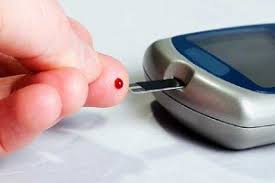- Home
- Editorial
- News
- Practice Guidelines
- Anesthesiology Guidelines
- Cancer Guidelines
- Cardiac Sciences Guidelines
- Critical Care Guidelines
- Dentistry Guidelines
- Dermatology Guidelines
- Diabetes and Endo Guidelines
- Diagnostics Guidelines
- ENT Guidelines
- Featured Practice Guidelines
- Gastroenterology Guidelines
- Geriatrics Guidelines
- Medicine Guidelines
- Nephrology Guidelines
- Neurosciences Guidelines
- Obs and Gynae Guidelines
- Ophthalmology Guidelines
- Orthopaedics Guidelines
- Paediatrics Guidelines
- Psychiatry Guidelines
- Pulmonology Guidelines
- Radiology Guidelines
- Surgery Guidelines
- Urology Guidelines
Intensive glucose control in type 2 diabetes can have adverse effects

The common approach of intensive glucose control to achieve low blood sugar targets in type 2 diabetes can increase the risk of mortality, finds a study by Cardiff University.
Looking at routine data from over 300,000 people in the UK, collected between 2004 and 2015, researchers found that lower levels of glycated hemoglobin--typically regarded as being good diabetes control - were associated with increased mortality risk, compared to moderate levels, especially in conjunction with intensive treatments that could cause hypoglycemia.
Professor Craig Currie from Cardiff University's School of Medicine said: "Treatment guidelines generally recommend therapeutic strategies that aim for low levels of glucose control, on the understanding that it reduces the risk of macrovascular complications such as coronary artery disease and stroke. Contrary to this belief, our findings show persuasively that there is an association with increased mortality risk and what is considered to be good glucose control or low HbA1c."
The findings of the study also suggest that neither randomised trials nor observational studies have been able to demonstrate a consistent pattern of association between levels of glucose control and adverse outcome, without any explanation as to why. Thus, the optimal target for glucose control in patients with type 2 diabetes remains uncertain. Furthermore, the pattern of mortality in relation to glucose control differed in relation to differing types of diabetes drugs. Of most concern was an increase in mortality risk in those with 'good control' with type 2 diabetes who were treated with insulin and other glucose-lowering drugs that induce hypoglycemia.
Professor Currie said: "Serious questions remain about the safety of some glucose-lowering drugs, with scientific evidence and opposing opinions being largely ignored."
For more details click on the link: http://dx.doi.org/10.1111/dom.13155

Disclaimer: This site is primarily intended for healthcare professionals. Any content/information on this website does not replace the advice of medical and/or health professionals and should not be construed as medical/diagnostic advice/endorsement or prescription. Use of this site is subject to our terms of use, privacy policy, advertisement policy. © 2020 Minerva Medical Treatment Pvt Ltd